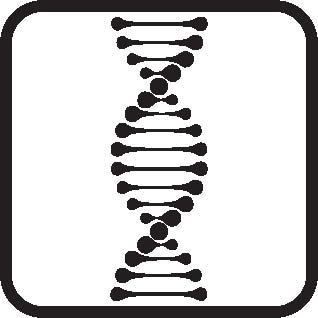Nowa Fantastyka Dec 2011

This won’t come as a big surprise to anyone who’s familiar with my fiction: I spend a fair bit of time thinking about consciousness, and what it’s good for. I poked at that question for years while I was trying to get a handle on Blindsight; I entertained and discarded any number of adaptive functions in search of that grand thematic punchline that would end the book. Yes, my protagonist would realize, self-awareness is absolutely essential because of X. The problem was, I couldn’t find an X that stood up under scrutiny; and it took me far too long to realize that Consciousness is good for nothing at all was the scariest and most existentially gut-churning punchline imaginable. It was only a what-if scenario for story-telling purposes. I didn’t expect anyone to take it seriously. I’m no expert; I figured that consciousness served some essential function that was blindingly obvious to anyone who actually knew what they were talking about.
I was as surprised as anyone to discover that this wasn’t actually the case.
David Rosenthal’s 2008 paper in Neuropsychologia concluded that consciousness was merely a side-effect of brain function, with no useful purpose. A couple of years earlier Ap Dijksterhuis and his colleagues published a paper in Science showing that consciousness actually impairs complex problem-solving. There were other examples, enough of them to warrant a review article in Discover in which author Carl Zimmer wrote “A small but growing number of researchers are challenging some of the more extreme arguments supporting the primacy of the inner zombie.” Somehow, when I wasn’t looking, the irrelevance of self-awareness had become the mainstream view: those who challenged it were merely a “small but growing” number of researchers, a plucky band of rebels going up against conventional wisdom.
The issue remains unsettled. In 2008 DeWall et al presented “Evidence that logical reasoning depends on conscious processing”; in 2005 Ezequiel Morsella made the wonderfully elegant argument that consciousness evolved not for art or science or complex reasoning, but simply to mediate conflicting motor commands sent to the skeletal muscles. (It’s a great, thought-provoking article that I don’t have space to go into here; but you can find it in Psychological Review, 112(4): 1000-1021). Blindsight notwithstanding, I hope these guys are right; I don’t like regarding myself as a wetware parasite in a brain that would be better off without me. I’d welcome grounds to believe otherwise.
Whenever I’m confronted with the argument that consciousness exists to fulfill a specific function (say, complex problem-solving), I ask myself one crucial question: is it possible to conceive of a system that performs the same function nonconsciously? An affirmative answer doesn’t mean that we don’t use consciousness to perform vital tasks, but it does suggest that there are other ways to get those tasks done. Which makes consciousness not something that evolution produced for a specific purpose, but something evolution used because it just happened to be lying around. Something else could have done the same job just as well, or better. And if there are other ways to get the job done, then consciousness by definition is unnecessary.
The thing is, when you put it that way, it starts to look as if a lot of these guys are asking the wrong question. Because when it comes to evolution, asking Why did consciousness arise?—asking Why did anything arise?—is meaningless. It implies that evolution allows organisms to adapt to changing needs and conditions. And while that view is very widely held, it is also completely ass-backwards.
In fact, adaptations show up before the environment changes. They pretty much have to.
Say you’re a fish in a shrinking pond. Evolution does not say Oh look, the pond is drying up; I guess I’d better grow that fish some lungs. It says Oh look, the pond is drying up. Lucky for that fish over there that he already happens to have a perforated swim bladder; it just might let him breathe air while he humps overland to the next pond. Shame about everyone else.
Natural selection doesn’t build things from scratch; it selects from pre-existing variations (which, in turn, arise via mutation and genetic mixing). It has to work with what’s already there. So it’s not that the environment changes and evolution catches up by pumping out all these new models; rather, evolution has already produced a range of models before the environment changes, and by chance a couple of them fare better under the new conditions. Those are the models that prosper. It’s not foresight. Evolution is utterly blind and completely stupid; it can neither see the future nor plan for it. It’s just that biological copying mechanisms aren’t perfect, so individuals differ within a clade purely by chance. Those variations act as a hedge against future change.
When you think in these terms, all the arguments about what consciousness is good for almost seem beside the point. Maybe evolution was looking for some way to manage the skeletal muscles, and repurposed self-awareness for the job the same way it repurposed those thermal-insulating things called feathers for flight. Maybe, if consciousness hadn’t been available, evolution would have used some other approach. Or maybe Rosenthal is right and self-awareness just kind of sits there without serving any useful purpose whatsoever. In any case, these are all questions that become meaningful only after consciousness has already arrived on the scene. Which begs the question: if self-awareness appeared prior to serving any actual function, how did that happen?
I’m working on that one. Stay tuned.